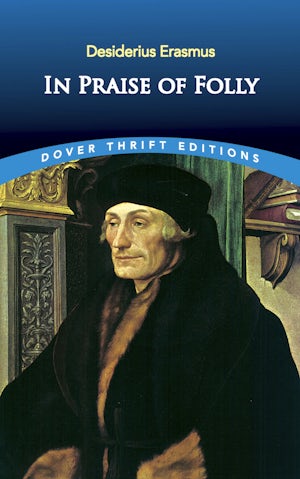
This witty, influential work by one of the greatest scholars of the Renaissance satirizes the shortcomings of the upper classes and religious institutions of the time. The most effective of all Erasmus's writings — ripe with allusions, vignettes, and caricatures — the literary gem was not only an extremely intelligent and articulate response to pretentiousness of all sorts, it also proved to be spiritual dynamite, leaving monastic brothers and clergymen the objects of universal laughter.
The book's purported narrator, the goddess Folly, proclaims herself to be the daughter of ... Read More
This witty, influential work by one of the greatest scholars of the Renaissance satirizes the shortcomings of the upper classes and religious institutions of the time. The most effective of all Erasmus's writings — ripe with allusions, vignettes, and caricatures — the literary gem was not only an extremely intelligent and articulate response to pretentiousness of all sorts, it also proved to be spiritual dynamite, leaving monastic brothers and clergymen the objects of universal laughter.
The book's purported narrator, the goddess Folly, proclaims herself to be the daughter of ... Read More

